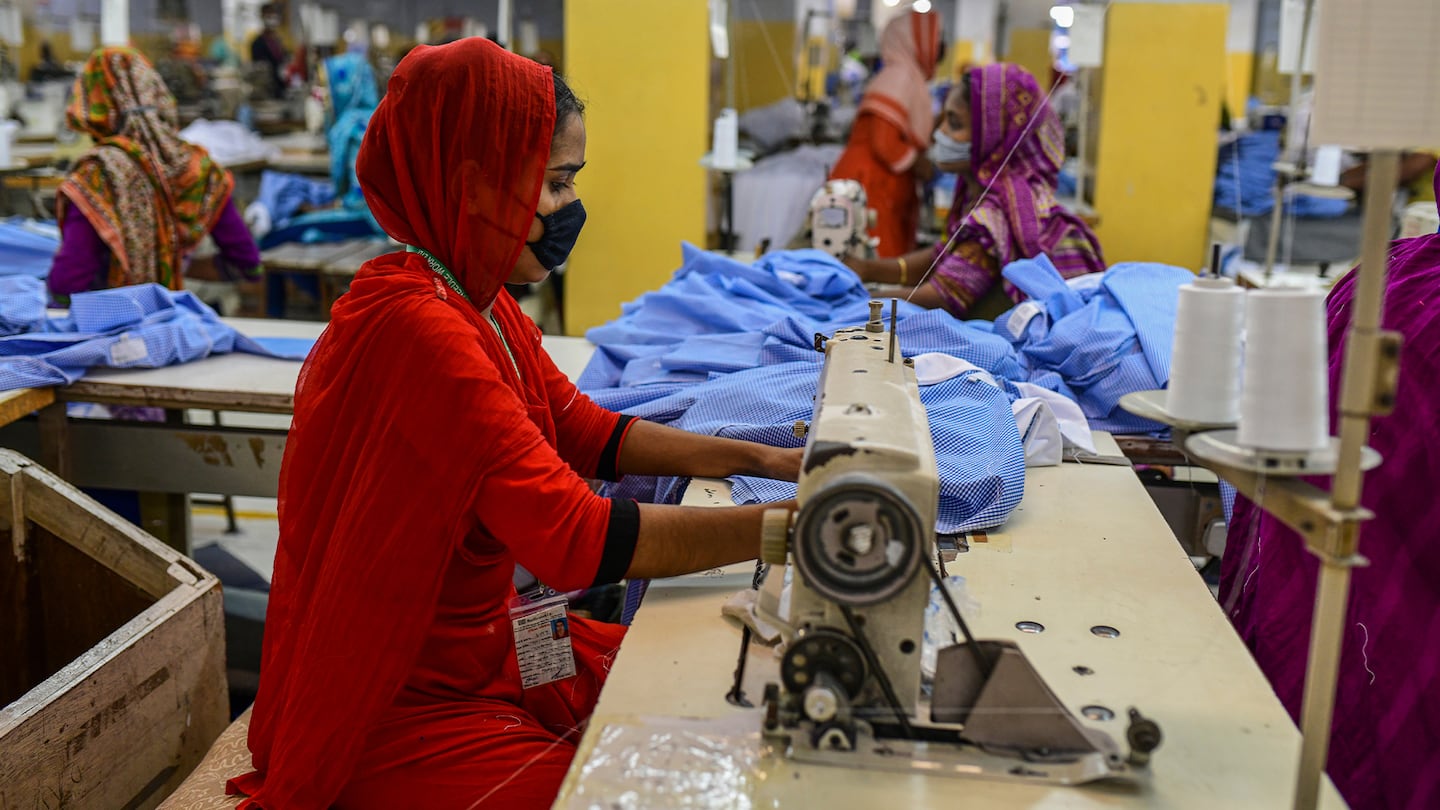
The Business of Fashion
Agenda-setting intelligence, analysis and advice for the global fashion community.

Agenda-setting intelligence, analysis and advice for the global fashion community.

Hundreds of garment workers in Bangladesh clashed with police for a second day on Thursday as they protested against a government-mandated pay rise, forcing the closure of nearly 40 factories in the world’s second-largest clothing exporter.
Witnesses said the protesters, who want twice the increase offered by the government, threw stones at police and vandalised several factories in the garment hub of Gazipur, on the outskirts of the capital.
“We managed to bring the situation under control,” local police official Imran Ahmed said. Authorities have deployed extra police and paramilitary troops in Gazipur and the nearby Ashulia industrial belt, he added.
The garment industry is a mainstay of Bangladesh’s economy, accounting for 16 percent of GDP, and on Tuesday, the government said the minimum monthly wage would rise by 56.25 percent to 12,500 taka ($114) from Dec. 1, the first increase in five years.
ADVERTISEMENT
The workers want more. On Thursday, workers downed tools at several factories at Ashulia, forcing them to close, police said.
“Prices are skyrocketing. We are just demanding decent pay. We will not return to work until our demands are met,” one of the protesters said.
One woman was killed on Wednesday as police used teargas and rubber bullets to disperse the protests, which have coincided with violent anti-government demonstrations demanding the resignation of Prime Minister Sheikh Hasina and calling for a free and fair vote under a caretaker government.
Low wages have helped Bangladesh build its garment industry, with some 4,000 factories employing 4 million workers, supplying global brands such as H&M and Gap.
A US association representing more than 1,000 global brands said it was committed to paying higher purchase prices to manufacturers in Bangladesh to support higher wages for workers.
By Ruma Paul
Learn more:
Bangladesh Hikes Minimum Wage for Garment Workers After Protests
The minimum wage for workers will rise to 12,500 taka ($114) per month from Dec. 1, State Minister for Labour and Employment Monnujan Sufian said.
Local streetwear brands, festivals and stores selling major global labels remain relatively small but the country’s community of hypebeasts and sneakerheads is growing fast.
This week’s round-up of global markets fashion business news also features Senegalese investors, an Indian menswear giant and workers’ rights in Myanmar.
Though e-commerce reshaped retailing in the US and Europe even before the pandemic, a confluence of economic, financial and logistical circumstances kept the South American nation insulated from the trend until later.
This week’s round-up of global markets fashion business news also features Korean shopping app Ably, Kenya’s second-hand clothing trade and the EU’s bid to curb forced labour in Chinese cotton.